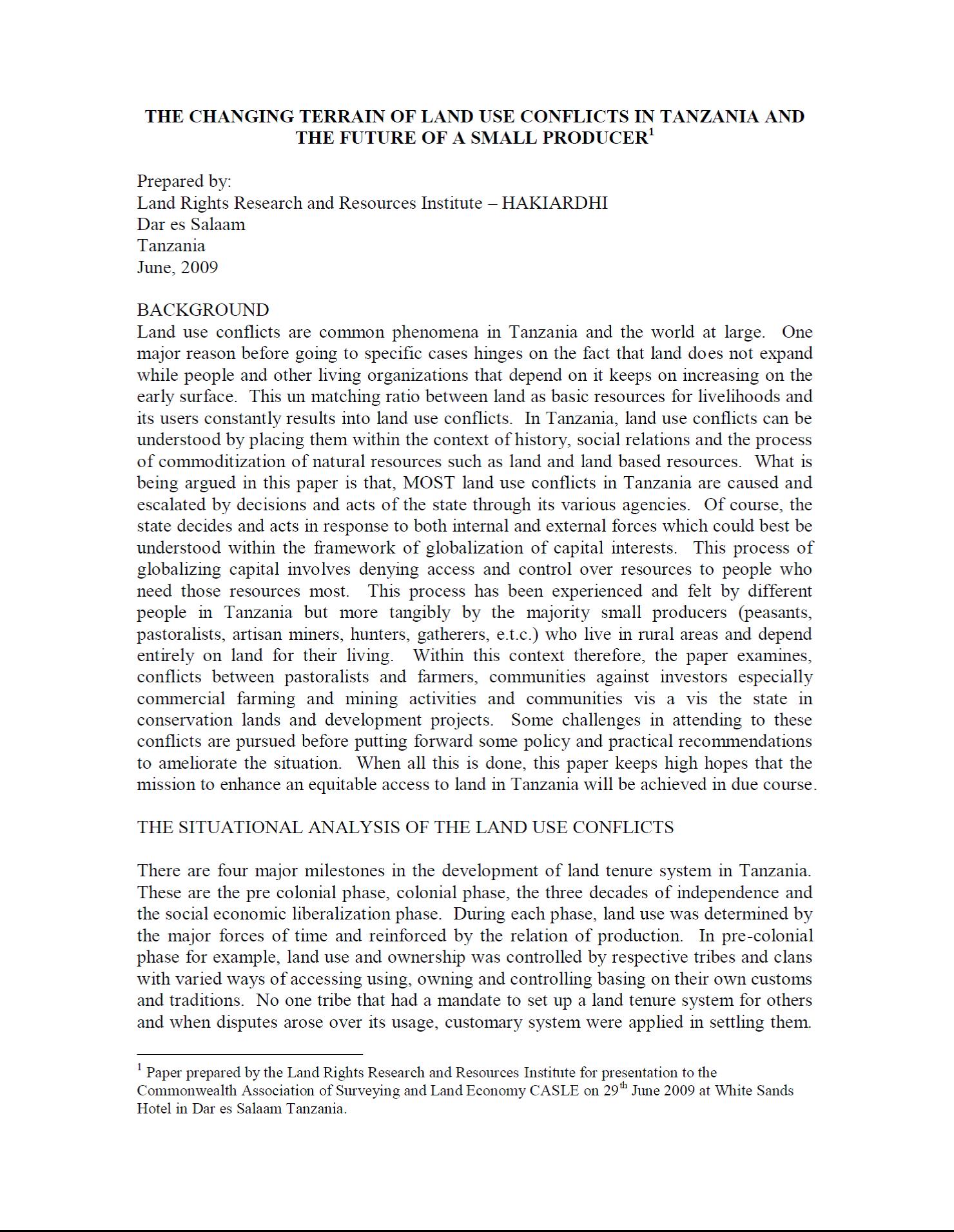Resource information
Land use conflicts are common phenomena in Tanzania and the world at large. One major reason before going to specific cases hinges on the fact that land does not expand while people and other living organizations that depend on it keeps on increasing on the early surface. This un matching ratio between land as basic resources for livelihoods and its users constantly results into land use conflicts. In Tanzania, land use conflicts can be understood by placing them within the context of history, social relations and the process of commoditization of natural resources such as land and land based resources. What is being argued in this paper is that, MOST land use conflicts in Tanzania are caused and escalated by decisions and acts of the state through its various agencies. Of course, the state decides and acts in response to both internal and external forces which could best be understood within the framework of globalization of capital interests. This process of globalizing capital involves denying access and control over resources to people who need those resources most. This process has been experienced and felt by different people in Tanzania but more tangibly by the majority small producers (peasants, pastoralists, artisan miners, hunters, gatherers, e.t.c.) who live in rural areas and depend entirely on land for their living. Within this context therefore, the paper examines, conflicts between pastoralists and farmers, communities against investors especially commercial farming and mining activities and communities vis a vis the state in conservation lands and development projects. Some challenges in attending to these conflicts are pursued before putting forward some policy and practical recommendations to ameliorate the situation. When all this is done, this paper keeps high hopes that the mission to enhance an equitable access to land in Tanzania will be achieved in due course.


